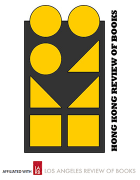Review by C. Derick Varn
Wendy Xu, Naturalism (Brooklyn Arts Press, 2015) 41pp.
C. Derick Varn reviews the latest chapbook collection by award winning China-born poet Wendy Xu, who now lives and writes in New York.
At first read, Wendy Xu’s Naturalism is disorienting: shifting between earnestness and abstraction, concrete imaginary and surreal fugue, political and aesthetic declaration. For a chapbook, this means a lot of jagged edges juxtaposed and jutting into each other. Yet these complex poems, even more than most poetry, reward being read several times: the logic of the juxtaposition and shifts become clearer, more amorous, more appealing, with each read. Like many more conceptual poets, Xu gives you the bread crumbs to follow her through a maze of writing. In many ways, this book is about how strange our relationship to both the natural and social world actually is: the naturalism of the title is naturalism related to many subjectivities—not just the normally privileged “I” of most poetry. So when Xu asks ‘What if truly one builds an empire of doubt,’ she isn’t bluffing nor is she shying away from the political or social by trying to inhabit that empire honestly. Naturalism is not a celebration of nature but an interrogation of it.
Naturalism unfolds atthe second and third reading as not just about our relationship to ideas, but also to concepts like naturalization and (thus) immigration. Xu, a poet born in China but who immigrated to the US in her childhood, allows flashes of that past into these eleven poems. Although one is not sure that the “I” here is the “I” of any one narrative of immigration: the “I” of the poems often itself seems dislocated and shifting between identities. In “Task Force,” “Moved all the way here to watch / television alone, swallowed by the grim // news grinning. Fuck a five-year plan, first / one passes through Tiananmen the gate,” one sees the simple immigrant narrative undercut as well as dislocated. Both past and present are rendered strange by the experience of mediation.

In “By Action,” Xu gives us another clue as to how to read the book: “On the page one alights without permission, or/ love is/ an assemblage.” These assembled elements of a self are presented lovingly but without narrative and without a singular identity. Both the standard narrative of immigration and the standard narrative of self-integration are subverted. Xu doesn’t shy away from direct statements, even that mimic the politics of the internet, as title poem announces, “This thought that lodges: venture capitalists/ of America kill yourselves,” Xu doesn’t allow the abstractions to shy away “Sheepishly” from any social commentary or from social or political anger. But even here she complicates the statement when in a few lines she has the narrator of the poem say, “situating a view of wilderness upending sky/ our inefficacy complaining, say nature / is amazing, the sentences in spades and nowhere/ to keep them…” All the declarations are necessary but complicated. Poems both are and aren’t weapons to liberate human subjectivities. Xu, here, seems fascinated by both what language can and can’t do. I highly recommend one reads these eleven poems several times.
C Derick Varn is a teacher, poet, and theorist living in Cairo. He is a reader for Zero Books and the editor of the online literary magazine, Former People. His poetry has appeared in Axe Factory, Writing Disorder, Union Station, and Unlikely Stories.
